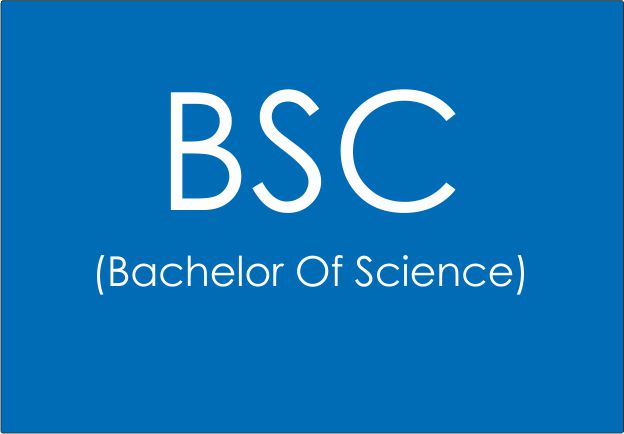The journey through higher education is a significant and sometimes daunting part of a young adult’s life, especially when choosing a path in science. The Bachelor of Science (B.Sc.) degree is a popular choice for many students who have a curiosity about the world and a desire to understand how things work. However, what is it like to pursue this degree? As a student pursuing a B.Sc., I can tell you it is more than just attending classes and taking exams. It’s a life-changing experience that not only deepens your understanding of the world around you but also shapes your critical thinking and problem-solving abilities.
In this article, I’ll share my perspective on what it’s like to study a B.Sc. – the highs, the lows, the challenges, and the rewards. I’ll cover aspects such as the learning experience, practical exposure, time management, and post-B.Sc. opportunities. I’ll also address some common FAQs for prospective students to help them understand what they can expect from the course.
The Journey Begins
The first day of a B.Sc. program is always filled with excitement and anticipation. You are finally stepping into an academic environment where you can learn about the subjects that fascinated you in school. The beginning of the degree program often starts with a mix of introductory subjects such as general physics, chemistry, biology, and mathematics. These subjects form the foundation for more specialized topics in later years.
For me, one of the most exciting aspects of a B.Sc. was the sheer diversity of topics I could explore. I chose a specialization in life sciences, so I delved into subjects like genetics, microbiology, and biochemistry. The first year is an opportunity to get a taste of everything and decide which path you want to pursue in the coming years. Some students might start off with general courses and later choose a more specific field like zoology or botany, while others may go into more interdisciplinary fields such as biotechnology or environmental science.
The beauty of a B.Sc. lies in its focus on not just rote learning but on understanding core concepts. Professors and lecturers focus on providing a strong theoretical foundation. Concepts are explained in detail, and there is ample room for critical discussions during classes. For example, in a biology class, we don’t just memorize cell structures; we learn how they function, how they evolved, and how they impact the world on a molecular level. This holistic approach made me appreciate the relevance of what I was learning in the real world.
The Diversity of Fields
One of the main reasons students opt for a B.Sc. is its wide range of specializations. In the first year, students generally take a combination of core subjects. As the degree progresses, however, there is more freedom to choose electives and specialize in a field that best matches one’s interests. This is an exciting prospect because it allows you to personalize your academic journey and focus on the subjects that intrigue you the most.
In my case, I chose a combination of biology and chemistry as my core subjects, but many of my peers chose subjects like physics, computer science, or mathematics. Some chose fields that were interdisciplinary, such as environmental science or biotechnology. The diversity of fields and specializations made it possible for everyone to find a subject area that matched their passion and career goals.
As a student, I appreciated that the B.Sc. curriculum allowed me to explore these options before locking myself into a single specialization. This flexibility meant I could consider a wide range of careers or further study opportunities, depending on where my interests took me. For example, if you have an interest in health sciences, you can specialize in microbiology or biochemistry and then go on to pursue medicine or research in healthcare. For students with an interest in technology, fields like data science, computer science, and applied mathematics offer excellent career opportunities after completing the degree.
Practical Experience: Bridging Theory and Reality
While theoretical knowledge is important, one of the most valuable aspects of a B.Sc. program is the emphasis on practical experience. As students, we spend a significant amount of time in laboratories, conducting experiments, and learning how to apply the concepts we’ve learned in class. In fact, the lab component of a B.Sc. program is often what differentiates it from other types of degrees.
For example, in chemistry, it’s one thing to understand the chemical reactions that happen in a lab but quite another to actually perform those experiments and observe the results. The hands-on experience is an eye-opener. It is here that I learned to apply theories, deal with unexpected results, and figure out ways to troubleshoot problems. This experience is not just useful for academic purposes; it prepares students for a wide variety of career opportunities that require critical thinking and problem-solving.
The importance of practical exposure is not limited to natural sciences. In fields like computer science or data science, students gain firsthand experience working with programming languages, building algorithms, and analyzing data sets. Even in subjects like mathematics, applying theorems to solve real-world problems helps solidify theoretical knowledge.
Another key advantage of practical work is the development of essential skills such as teamwork, time management, and communication. In many cases, lab assignments are group-based, requiring collaboration with peers. This fosters teamwork and the ability to communicate complex scientific ideas effectively, which is an invaluable skill in the workplace.
Time Management and Challenges
Anyone pursuing a B.Sc. will quickly realize that it’s not a walk in the park. The amount of coursework, lab sessions, assignments, and exams can be overwhelming at times. As students, we need to juggle multiple subjects simultaneously, each with its own set of challenges and deadlines. It can feel like you’re constantly racing against time, especially during midterms or when preparing for final exams.
However, this is where time management becomes crucial. A key skill I’ve learned as a B.Sc. student is how to plan my time effectively. The workload is significant, and it’s easy to feel overwhelmed, but with good organization, I’ve been able to manage my assignments, study time, and extracurricular activities. Creating a study schedule, prioritizing tasks, and sticking to deadlines are practices that have helped me stay on top of my work.
In addition to managing academic tasks, there’s also the challenge of maintaining a balance between study and personal life. It can be difficult at times to find time for hobbies or relaxation, especially when you’re deep into project deadlines or preparing for exams. But, over time, I’ve learned the importance of taking breaks and ensuring that I don’t burn out.
Post-B.Sc. Opportunities
One of the most important aspects of pursuing a B.Sc. is thinking about what comes next. For many students, the journey doesn’t end with graduation. The B.Sc. degree opens up numerous opportunities for higher education, career paths, and research. While some students may choose to enter the workforce immediately after completing their degree, others pursue further studies.
Higher studies such as a Master of Science (M.Sc.) or research-based degrees like a Ph.D. offer students the chance to deepen their knowledge in a specific field. Some of my peers have gone on to specialize in fields such as molecular biology, chemistry, or artificial intelligence. This route is ideal for those interested in research and academia.
For students who want to enter the workforce directly after their B.Sc., there are a plethora of career options available. Industries like pharmaceuticals, healthcare, environmental science, data analysis, and education are all popular sectors for B.Sc. graduates. For example, I know students who have gone on to work in research labs, biotech companies, or even as data scientists at tech firms. The skills learned during the degree – like analytical thinking, problem-solving, and technical expertise – are highly valued in many industries.
Moreover, the increasing demand for skilled professionals in science and technology-related fields means that B.Sc. graduates are in high demand. Whether it’s through internships, fellowships, or networking, students are often able to find job opportunities during or shortly after completing their B.Sc.
Frequently Asked Questions (FAQs)
1. What are the main subjects in B.Sc.?
The main subjects in B.Sc. depend on the specialization you choose. Some of the core subjects include mathematics, physics, chemistry, biology, and computer science. For example, in a B.Sc. in life sciences, you might study subjects like microbiology, genetics, and biochemistry, while in computer science, subjects like algorithms, programming, and data structures are common.
2. How much time should I dedicate to lab work?
Lab work is an essential part of a B.Sc. program. You’ll likely spend several hours per week in the lab, depending on your specialization. It’s important to treat lab time as seriously as lecture time because it offers hands-on experience that is crucial for understanding theoretical concepts.
3. Can I pursue a career in research after B.Sc.?
Yes, a B.Sc. is an excellent stepping stone for a career in research. Many students choose to pursue further studies such as an M.Sc. or Ph.D. to gain specialized research experience. After that, research positions in academic or industry labs are common career paths.
4. Is B.Sc. a good option if I want to work in the tech industry?
Absolutely! Many students with a background in mathematics, computer science, or physics have gone on to pursue successful careers in the tech industry. Programming skills, analytical thinking, and problem-solving abilities are highly valued in this sector.
5. How difficult is B.Sc.?
B.Sc. can be challenging due to the heavy emphasis on both theoretical learning and practical work. However, if you are passionate about science and willing to put in the effort, the degree is manageable. With proper time management, support from peers and professors, and a strong interest in the subject, you can navigate the challenges successfully.




